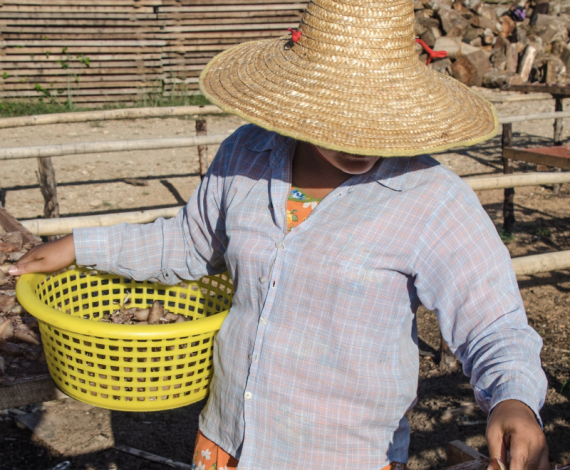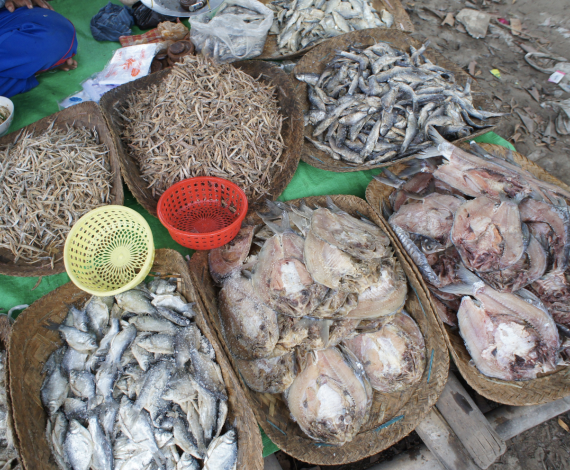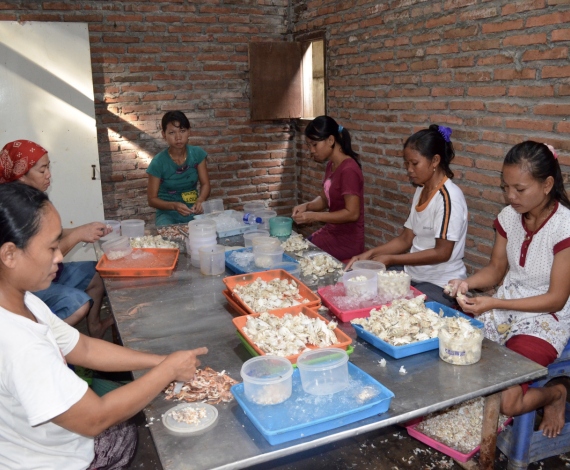

How do aquatic foods contribute to global food security and nutrition outcomes?
Aquatic foods play a crucial role in combatting food insecurity and malnutrition in many communities worldwide. They are high in Omega-3 fatty acids and essential micronutrients, including vitamin A, vitamin D, iron, calcium, zinc, and iodine. These nutrients are particularly important for the proper development of infants and children, but also support positive health outcomes in adolescents and adults. Aquatic foods also provide animal-based protein for many communities that lack access to land for agriculture or pastoralism. Despite the significant role of aquatic foods in local and global food systems, they have been an under-recognized resource in the policy dialogues surrounding food security.
Why are small-scale fisheries important in supporting nutrition?
Small-scale fisheries provide locally-caught, nutritious aquatic foods to their communities. It is estimated that 31% of children in developing countries are underweight and 38% experience stunted growth as a result of malnutrition.1 Malnutrition is implicated in a variety of lifelong health conditions, including cardiovascular diseases, impaired immune functioning, and pneumonia.2 Many countries rely on small-scale fisheries to provide fish and other aquatic foods as a vital source of animal protein and macro- and micro-nutrients, which helps to decrease the rates of malnutrition and improve childhood health outcomes.2 Recognizing the role of small-scale fisheries in supporting food security and nutrition outcomes is an important and frequently overlooked opportunity for alleviating global malnutrition and food insecurity.


Why focus on "Fish as Food"?
The traditional framing of fish as a natural resource emphasizes their importance in biodiversity conservation and economic development but does not address their role in supporting equitable, nutritionally-sensitive food systems. Current efforts to promote global food and nutrition security undervalue the contributions of fisheries and aquaculture, thus falling short of their ability to promote food/nutrition security for the communities that have the greatest need. Recognizing fish as food, rather than a natural resource, creates greater incentives for investment in the sustainability of small-scale fisheries and aquaculture, thereby enhancing the role of fish in alleviating global hunger and malnutrition.
How has the COVID-19 pandemic impacted small-scale fishers?
The COVID-19 pandemic has created many social and economic consequences for small-scale fishers and fishworkers, including closures of fisheries, market and supply-chain disruptions, reduced demand and collapsing prices, increased health risks, exacerbated stressors for marginalized populations (including women and Indigenous Peoples), more frequent occurrences of Illegal Unreported and Unregulated (IUU) fishing, and dramatically increased rates of hunger and food insecurity.3,4 Although many of the impacts of COVID-19 on small-scale fisheries have been negative, there have been several positive outcomes. These include the revitalization of local food networks to fill in the gaps created by supply chain disruptions, increases in local sales and delivery, collaboration between community and government agencies, collective action to safeguard the rights of SSF actors, and the recognition of fisheries as an essential service for equitable food production.3 To hear first-hand accounts of how COVID-19 has affected small-scale fishers, click here.

